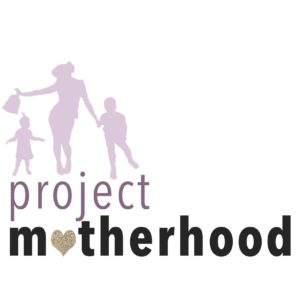The Sunshine When She’s Gone by Thea Goodman
Editor’s Post by Deborah Hetrick Catanese
As predicted when we announced our Second Selection for our Book Club, this book has generated lots of chatter and significant controversy from our readers, in our first foray into fiction.
The book starts out innocently enough, but there IS that first word to contend with. Let’s look at the first paragraph together:
“Kidnap was not the right word. John had simply meant to take Clara to breakfast at the corner diner, where they had good poached eggs and were especially kind to babies. But in the end he couldn’t explain the inexorable pull, the electric thrum that made him rise from the bed, strangely untethered, and begin to shave with scalding water, or the innocence of his motive-he just wanted to be with her. He couldn’t describe the indefinite urgency that had propelled him. Yes, he took the baby with him, but she was his daughter.”
So Question One emerges with that first word: can a father kidnap his own daughter if the parents are together? And WHY would a father do such an insane thing of taking a baby to the Caribbean without telling his wife?
The narrator speaks as an omniscient third person (I know this thanks to my J.D. Salinger teacher who explained that tidbit about narration to me!). This is a narrator who knows the inner feelings of the characters in this book, and it is that aspect of the book that I really loved…knowing their inner workings, even as they didn’t understand one another’s or even their own. My fascination with the book had much to do with all of those intense emotions brewing so deeply within these characters, emotions that they are unable to express other than through outrageous actions.
The author does not hesitate to jump right into this controversial action from the very start. I see this as the author’s way of emphasizing how great the divide between the spouses and how miserable the situation.
Many readers object to the father’s action. OF COURSE it is objectionable, especially when he lies to his wife and tells her on voicemail he is visiting his mother! And doesn’t return for days! But to me, this radical step was a great way to bring the problems of the couple to a head in the mind of the reader…the problems that ensued between a sexy, happily married couple after a difficult childbirth unexpectedly led to a hysterectomy. As a new father, he felt like he gained a baby and lost a wife and his whole world was upended by his wife’s newly distant behavior.
The mother’s precarious mindset is triggered by the stark knowledge that, upon her first child being born, the emergency hysterectomy meant it would also be her last child. And the exhaustion of dealing with a new baby just exaggerated her difficulties. But once her husband took off with the baby for his little getaway, the wife took notice and actually missed her husband and baby. But she also drank like a fish and had sex with an old fling. Kind of challenging behavior there, too, I’m sure we could agree. These are coping skills that are the better for avoiding. Yet these are very real human characters and their flaws are ones that we understand, even while we hope and pray that we would make better choices if faced with the same stresses. There but for grace go I, right?
This couple was in trouble. They were coming from two very different places. And they both felt extremely wounded and abandoned by the person they loved, all the while the oppressive tiredness of infancy clouded their rational thought. The real problem, though, was that neither one of them understood the other person’s perspective since they were so caught up in their own.
Why do so many people think this book is supposed to be a light-hearted piece, and then they complain that they did not think it was funny? Did you find it humorous? Or sad?
There were some descriptions that were funny in the sense that they captured some of the idiosyncrasies of our times, for example the mother’s obsession over the type of milk for her infant. This is where some of the humor comes in, I think, since it is such a truth about our society that we fret and obsess over things that other cultures could only dream of. But within the humor is lots of sadness too, some of which is the sadness of taking oneself too seriously.
So why do you think the bright, sunny tropical image was chosen for the cover? Does this cause some of the confusion about what kind of book this is?
I personally think the cover does the book an injustice. It is eye-catching but light-hearted in tone, but the book is not really a tropical romp. In fact, much of it takes place in New York City, which they call home, so the cover is misleading on that front too. Plus, the tropical part of the story shows the poverty/privilege dichotomy of the islands and the scarity of resources that often result, NOT the sunshine-y days. Nor is the trip to the islands the light-hearted escape the husband hoped for.
So, what about the Title?
I love the title.
First, it is interesting in that the husband is the one who goes on a physical journey, and a journey to the sunshine no less, but it is clear throughout the book that he feels like he has lost his wife to her depression and her fears. There is no emotional sunshine for HIM with the extreme unavailability of his sexual partner and his life partner. But she is unavailable partly because she thinks HE doesn’t understand, and in many ways, he doesn’t. YUP. Is there anyone in a long term relationship who doesn’t understand this to some degree?
Second, I love the title because it is very similar to the song I adore from 1971 by Mr. Bill Withers…
Ain’t no sunshine when she’s gone
It’s not warm when she’s away.
Ain’t no sunshine when she’s gone
And she’s always gone too long
Anytime she goes away.
And I know I know I know I know…
Who wouldn’t want her man to feel that way? I think our mother and wife wants to feel this directly from her husband. But she is so lost in her fatigue and bitterness ATB (After the Baby, in Project-Motherhood-speak!) that she can’t even feel him when he IS there, and he is failing in his misguided efforts to show her. So she and her sunshine ARE indeed quite gone, for much of the story.
But I won’t tell you any more….if you haven’t already read it, you should. This book is worth it because it makes you think, even when you totally disagree with what the characters are doing! And you feel so sane in comparison!
(In December, we will announce our next selection! Book Three will go back to Non-fiction and will of course have to do with fashion and motherhood on some level. Stay tuned for the announcement!!!)
Fashionably yours,
Deborah

















Leave a Reply